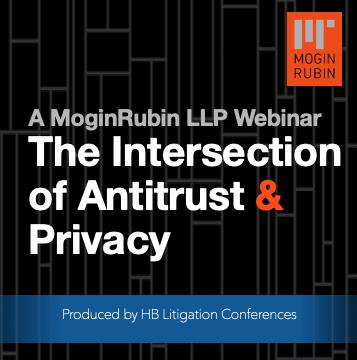FTC Settles Health Data Sharing and Privacy Suit With Fertility App Flo Health
Nothing in this life is free. Or cheap. Free and low-cost apps. Free internet searches. Free email. Free iPhones. Yeah. We’re paying for it one way or the other. In this case, once again, it’s private health information some folks are paying with. Here is an excerpt of a post shared with the permission of Fastcase and Law Street Media. —Tom Hagy, HB Litigation Conferences
WASHINGTON, DC — Jan. 13, 2021 — The Federal Trade Commission (FTC) announced that that it has reached a proposed settlement with Flo Health, Inc., the “developer of a period and fertility-tracking app used by more than 100 million consumers,” over claims that the company shared user health information with third-party data analytics providers despite promising that this information would remain private.
In the complaint, the FTC alleged that Flo promised users that it would keep their health data, which includes menstrual cycle tracking and a PMS symptom log, as well as ovulation, fertility, and pregnancy information, private because it would only use this information to provide the app’s services to users. However, the FTC averred that Flo disclosed millions of users’ health data from its Flo Period & Ovulation Tracker app to third-parties “that provided marketing and analytics services to the app, including Facebook’s analytics division, Google’s analytics division, Google’s Fabric service, AppsFlyer, and Flurry.”
Mass Tort Emotional & Psychological Claims
Emotional & Psychological Claims in Multi-Plaintiff Toxic Tort Litigation: What attorneys need to know about the scientific and medical aspects of these injuries. On-Demand | Recorded October 27th, 2020 ON DEMAND WEBINAR REGISTRATION Emotional injury claims often arise in toxic torts due to exposure to asbestos, mold, carbon monoxide, and environmental contamination, to name a few. And now, as large swaths of the nation are often engulfed in flame, what physical and emotional effect might manifest from prolonged smoke inhalation? Determining the validity of these injuries and any causal connection is difficult. It requires careful study by truly qualified experts often from various disciplines. When psychological harm exists, it can be debilitating. There is much an attorney should know when wading into these types of claims. How often is there a legitimate injury? What different types of injuries are there? What should attorneys know when working with or challenging psychological experts? How is causation proven or disproven? How are damages determined? Join our panel comprising a forensic neuropsychologist, an industrial and occupational physician, a forensic psychiatrist, and an experienced mass tort practitioner as they share their insights and experiences. Key Points Understanding the different types of psychological injury claims. Understanding the differences between objective injuries that are easy to identify and distinguish, versus subjective injuries such as pain or restricted movement. Distinguishing between real psychological injuries and malingering. Understanding the frequency of valid emotional injuries. Identifying the causal relationship between exposure and health effects. Knowing and understanding key medical studies. Understanding the evidence needed to prove or disprove claims. Evaluating damages, such as treatment costs and the extent of functional impairment. On Demand Webinar Registration Includes Nearly 75 minutes of insights from experienced professionals. CLE credit: 1+ (subject to bar rules). For CLE questions: CLE@LitigationConference.com The complete Power Point presentation. Continued access to the complete recording for later use. Answers to your questions via email to the presenters or write to HB and we will be sure to contact the speakers. ON DEMAND WEBINAR [...]
Organizational Values & Business Risks: Properly Balancing Stakeholder Concerns
Accommodations. Appropriate accommodation for high-risk employees or employees with family members who are at a heightened risk. Mitigation. Attention to means of mitigating transmission and infection. Tracing. Contact tracing and management of data collected, including health data, as well as responses to employees who refuse to report. Patient Sensitivity. Duty to avoid discrimination and stigmatization. Preparedness. Developing plans to address possibility of re-occurrence in the fall and managing possible outbreaks in company’s offices. On-demand on the Thomson Reuters West LegalEdcenter as part of the HB catalog. Organizational Values & Coronavirus Business Risks: Properly Balancing Stakeholder Concerns Produced for Emory University Center for Ethics by HB Litigation Conferences The current pandemic confronts businesses, nonprofit organizations, governments, and the legal profession with innumerable ethical challenges. Management issues and liability concerns, stakeholder demands and legal duties become even more complex in an environment of uncertainty and one where the consequences could result in serious illness or even death. This program seeks to engage the participants in thinking through these challenges and developing processes of ethical response to them. Managers must acknowledge and address the framework of fear associated with the pandemic, ranging from fear of contagion and death to fears of unemployment, childcare, and the duties of home-schooling. Additionally, as the economy reopens there must be serious attention to the processes of doing so. Join Professor Edward L. Queen from Emory University for invaluable insights. Emory's medical team was on the frontline of the 2014-2016 Ebola epidemic, which began in December 2013 when an 18-month-old Guinean boy contracted the disease. According to the CDC, the outbreak ended with more than 28,600 cases and 11,325 deaths. Eleven people were treated for Ebola in the United States. Edward L. Queen Director of Ethics and Servant Leadership Emory University Professor Edward L. Queen Edward L. Queen is director of the D. Abbott Turner Program in Ethics and Servant Leadership and Coordinator of Undergraduate Studies at Emory University’s Center for Ethics. At Emory he also serves as [...]
The Intersection of Privacy and Antitrust Webinar Now Available On-Demand on the West LegalEdcenter
Available as part of your subscription to The Thomson Reuters West LegalEdcenter®. Don't subscribe to the West LegalEdcenter? This webinar is still available directly from HB. Take it now! Questions for speakers Questions@LitigationConferences.com CLE questions CLE@LitigationConferences.com Check out the MoginRubin blog for more insights on antitrust and privacy law. What attorneys and companies need to know about the increasing interplay between these critical areas of the law. Highly publicized cases and investigations in the U.S. and Europe of big technology, e-commerce, and social media companies demonstrate how anti-competition laws are being used to scrutinize and challenge not only how these corporations conduct themselves in the marketplace, but the very core of their colossal success: the mass collection and utilization of user data. Are the privacy and antitrust worlds beginning to cross over? Or do they simply run parallel while addressing entirely different types of conduct? Whatever the answer, data is the raw material that drives the likes of Google, Facebook, Apple and Amazon, so how it is handled is a critical question when counseling clients on mergers and acquisitions. Moderator Daniel J. Mogin | Managing Partner, MoginRubin LLP Speakers Jennifer M. Oliver, CIPP/US | Partner, MoginRubin LLP Thomas N. Dahdouh | Director, Western Region, Federal Trade Commission Franklin M. Rubinstein | Partner, Wilson Sonsini Goodrich & Rosati Randi W. Singer, CIPP/US, CIPT | Partner, Weil, Gotshal & Manges Contributor Dina Srinivasan | Independent Researcher & Author of The Antitrust Case Against Facebook Dina was unable to present but we thank her for her content contributions. Agenda Who should regulate privacy violations in the U.S.? Which antitrust issues implicate privacy concerns? What role does machine learning play on the competitive landscape? What is big data really? How is it different from “data”? What are the elements of effective merger reviews? What are the appropriate remedies? What are “notice-and-choice” versus “harms-based” approaches? Plus answers to your questions. Send them to Questions@LitigationConferences.com.
Settlement Psychology: Who is in Control? Homer Simpson or Mr. Spock? | Complimentary Webinar
Settlement Psychology Who's in charge? Homer Simpson or Mr. Spock? Cognitive obstacles to finding common ground. Complimentary On-Demand Webinar From HB! 1 CLE credit CLE questions? CLE@LitigationConferences.com Questions for speakers? Questions@LitigationConferences.com SPEAKERS Jeff Trueman Mediator / Negotiator John Philip Miller Baltimore City Circuit Judge (ret.) This course is also available via the West LegalEdcenter. Improve your negotiation strategy and outcomes. Mediator, arbitrator and settlement conference neutral Jeff Trueman says the lawyer’s mind can sometimes play tricks on them when it comes time to settle a claim. “The central question on the minds of counsel, their clients, and insurance professionals in civil litigation is, of course, ‘What’s the case worth?’ For mature torts there is enough historical settlement and verdict data exist for counsel to argue why a particular case should or should not fit within a certain settlement range. In the midst of these discussions, the human brain plays tricks on us. For example, litigators sometimes assume that their trial experience can determine how jurors will negotiate with one another and resolve factual discrepancies after closing arguments. This assumption is a ‘heuristic’ – a cognitive shortcut called attributional error or illusion of control.” Backed by his decades of psychological and economic sciences research, Trueman says there is a lot of room for attorneys to change their mindset when moving into settlement mode. Litigation Chicken “When differences over case value intensify, litigators return to threats of relinquishing control: ‘Maybe we have to try this case;’ or ‘We feel good about our chances in front of a jury.’ Underneath the games of litigation chicken that are the hallmark of settlement negotiation, heuristics lead to erroneous valuations and assessments of risk.” He says attorney would be well served, and would serve their clients well, if they make adjustments depending on their role at a given point in the process. “Many lawyers default to their role as advocates for legal rights without considering the quality of counsel they give to clients regarding risk management. This plays [...]







